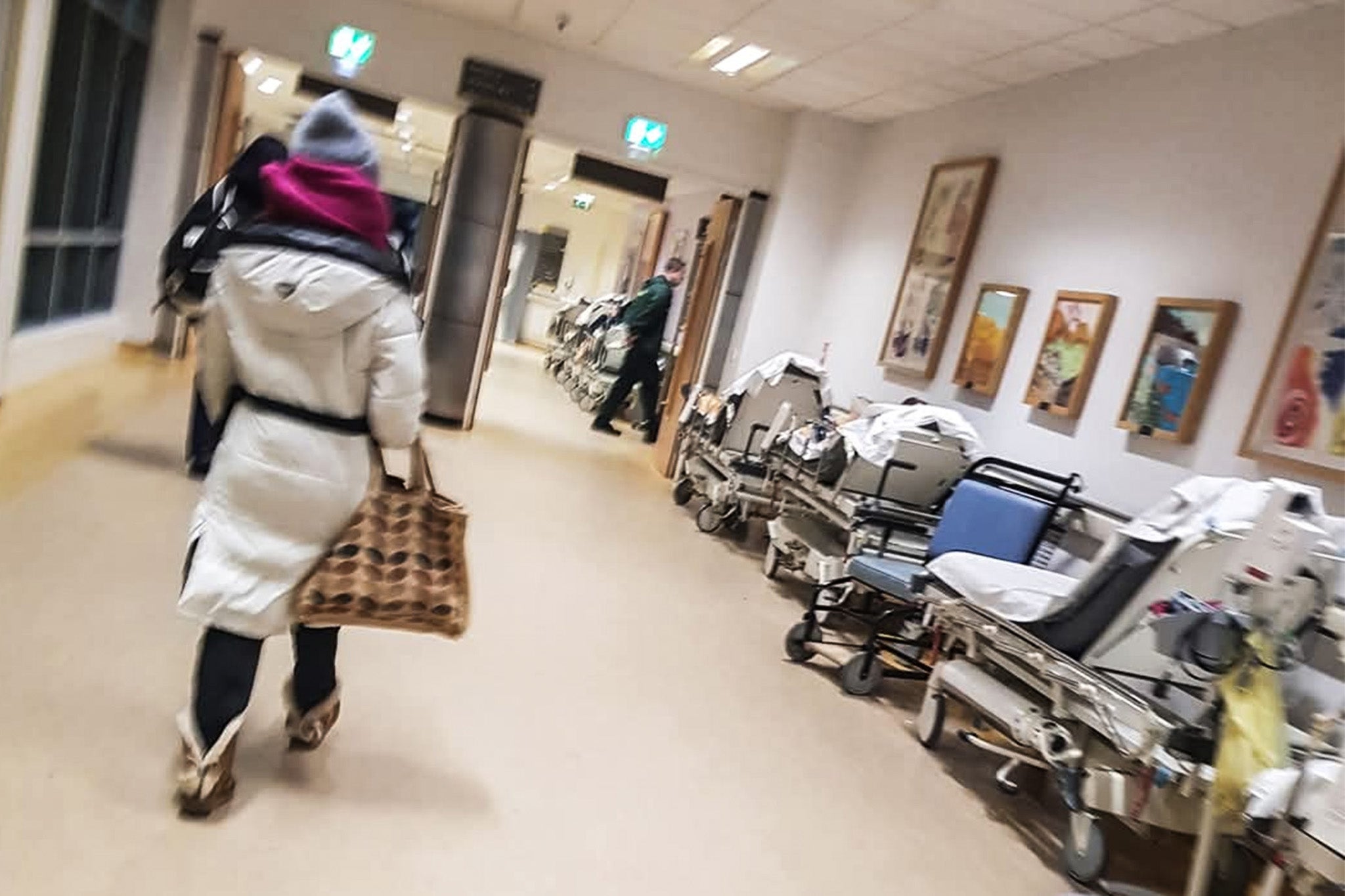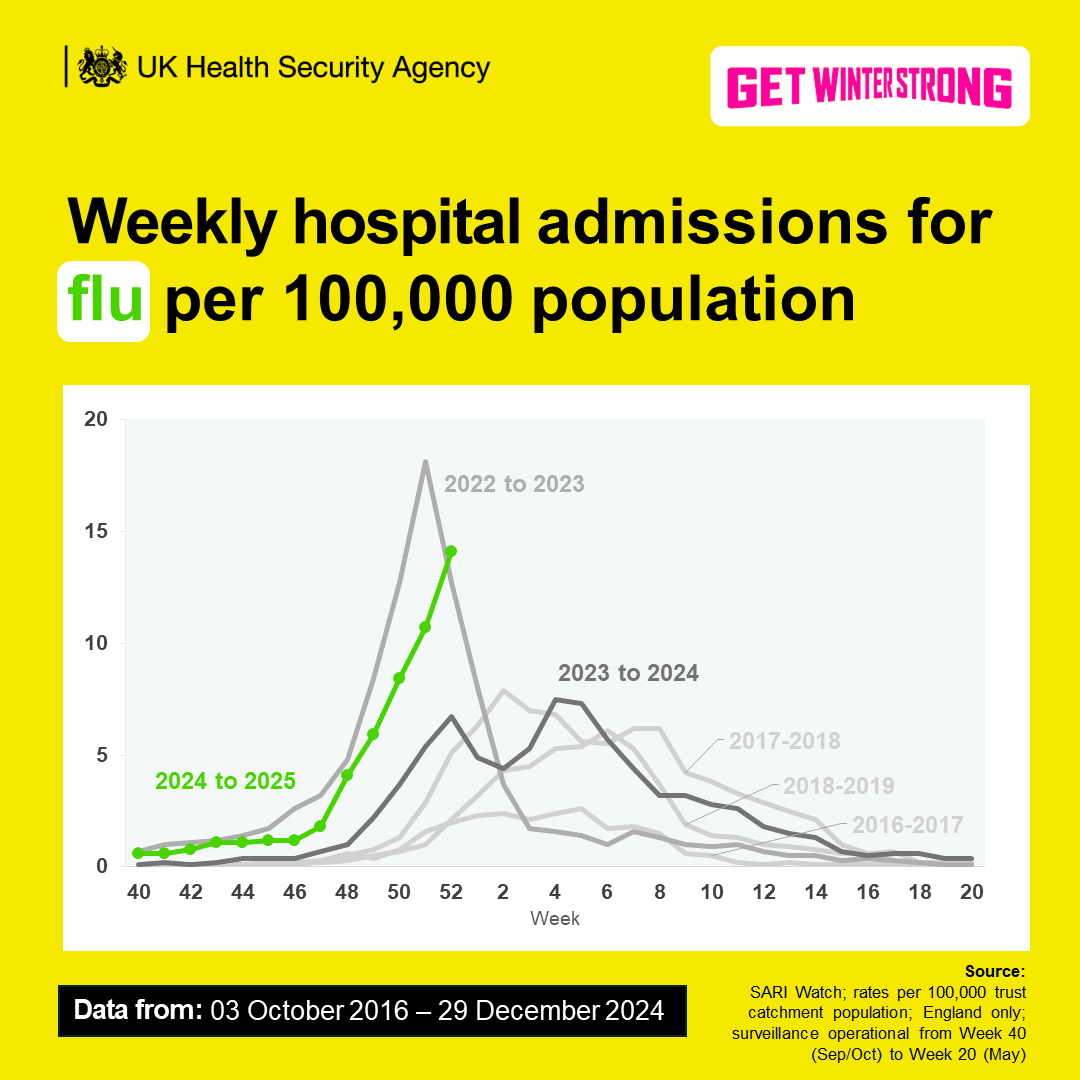Winter flu peak still to come warns top UK doctor as hospital wards now ‘full to bursting’
Several NHS trusts have declared critical incidents because of sustained pressure in A&E departments amid the rise in flu cases
Your support helps us to tell the story
From reproductive rights to climate change to Big Tech, The Independent is on the ground when the story is developing. Whether it's investigating the financials of Elon Musk's pro-Trump PAC or producing our latest documentary, 'The A Word', which shines a light on the American women fighting for reproductive rights, we know how important it is to parse out the facts from the messaging.
At such a critical moment in US history, we need reporters on the ground. Your donation allows us to keep sending journalists to speak to both sides of the story.
The Independent is trusted by Americans across the entire political spectrum. And unlike many other quality news outlets, we choose not to lock Americans out of our reporting and analysis with paywalls. We believe quality journalism should be available to everyone, paid for by those who can afford it.
Your support makes all the difference.The worst of the winter flu season is yet to come, a top NHS doctor has warned, as hospitals remain “full to bursting” across the country with hundreds attending emergency departments.
On Wednesday, bosses at Warwick Hospital became the latest to declare a critical incident this week after experiencing “some of the highest [attendances] we have ever experienced” over the past week.
Around a dozen other hospitals - including Royal Cornwall Hospital and Queen Elizabeth Hospital in Birmingham - have already sounded the highest level of NHS alert as staff struggle to meet a surge in demand.
A&Es have been forced to treat people in corridors, and a patient at one hospital forced to wait 50 hours to be admitted to a ward. Some hospitals have restricted visitor numbers while others are encouraging people to wear surgical masks.

On Wednesday there were about 5,000 flu patients in hospital in England, said Professor Julian Redhead, NHS national clinical director for urgent and emergency care. That figure is around the same as at the end of last week, but four times higher than the end of November.
Prof Redhead told PA: “It’s too early to say it’s definitively peaked. I would hope there would be a peak in the next one to two weeks.
“We have pressure in emergency care all year round but the winter, with the added pressures of flu and other viruses, really makes that a really stark feeling of pressure
“Wards are now full to bursting and that pressure is feeding back into A&E departments, with patients being treated in environments not usually used for clinical care.”
The comments were echoed by NHS Confederation acute network director Rory Deighton, who said: ““The next two to three weeks will likely be the busiest period of the year for many local services and we need to acknowledge the strain that this will place on staff and services.”
Photographs show patients waiting on trolleys at Royal Blackburn Hospital’s A&E department.
Deputy chief executive at East Lancashire Hospitals NHS Trust, Sharon Gilligan, said Royal Blackburn’s A&E was one of the busiest in the north west, and when all cubicles are full the staff often have no choice but to treat patients in corridor space.

“This is always exacerbated over winter when seasonal respiratory illnesses, including flu, add to the existing pressures,” she said.
“Please be assured that whilst patients are waiting for a bed, they are being cared for, reviewed, assessed and supported by colleagues.”
Mr Deighton said a critical issue was the fact that about 11 per cent of hospital beds were being taken up by people who could otherwise go home with support from social care.
“Our members tell us that they are seeing more patients who are older or frailer, often with multiple or more complex conditions,” he told The Independent. “These patients are therefore more vulnerable to experiencing complications and can be left waiting in hospital beds while vital care packages at home or in the community are sorted out with community or social care services.”
He said increased funding for social care was crucial, and commended the government’s ambition to find a long-term solution.
On Tuesday, Health Secretary Wes Streeting said he felt “distressed and ashamed” when he heard about some of the experiences patients are facing in the NHS. He said that the Government would publish an urgent and emergency reform plan shortly.
NHS data being released on Thursday is expected to show another rise in the number of people admitted to hospital because of flu.
